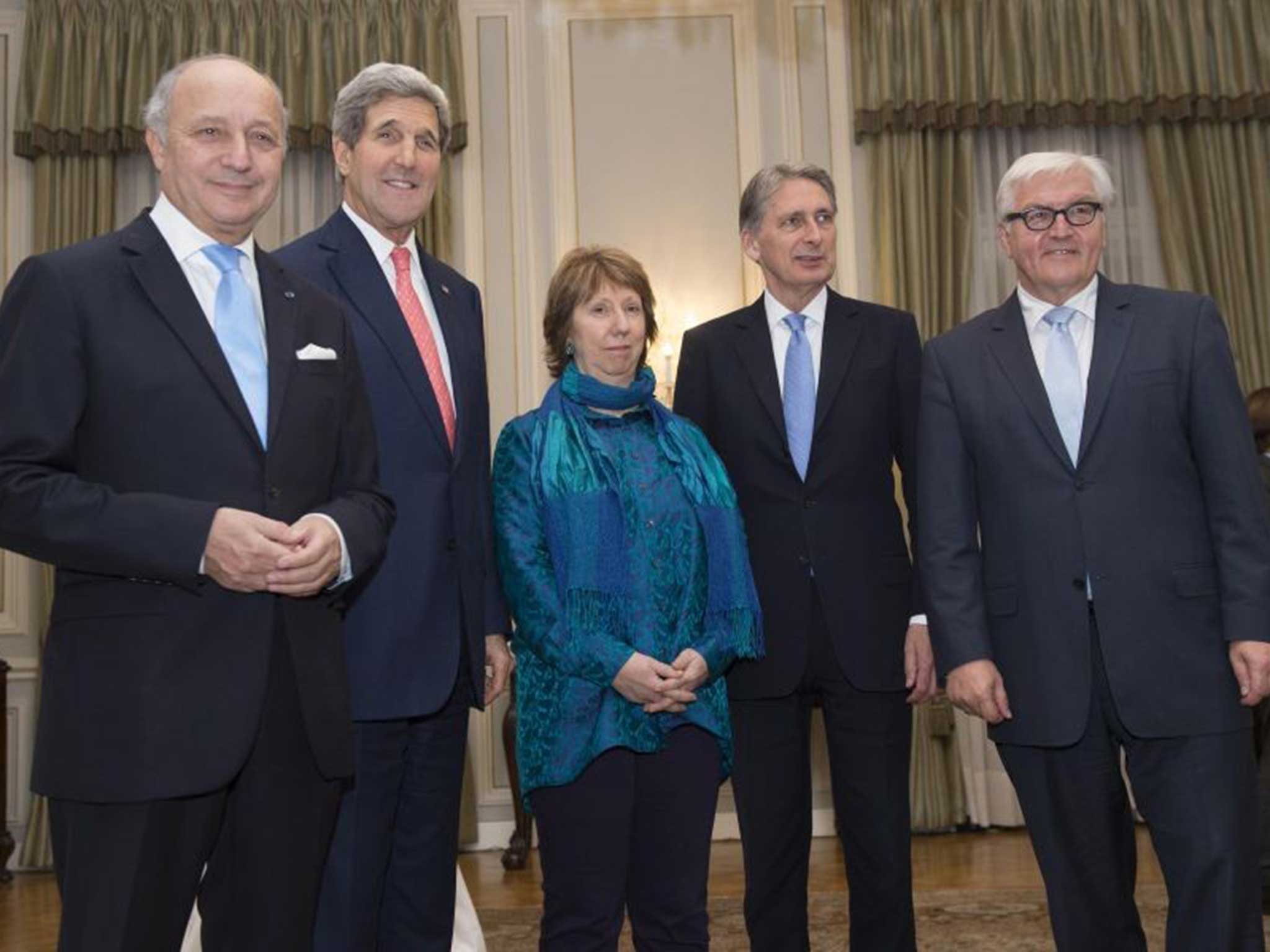Iran nuclear talks: What is it and what are both sides after?
Security Council diplomats are entering the final hours of latest talks on Iran's nuclear capabilities as discussion stalls

Your support helps us to tell the story
From reproductive rights to climate change to Big Tech, The Independent is on the ground when the story is developing. Whether it's investigating the financials of Elon Musk's pro-Trump PAC or producing our latest documentary, 'The A Word', which shines a light on the American women fighting for reproductive rights, we know how important it is to parse out the facts from the messaging.
At such a critical moment in US history, we need reporters on the ground. Your donation allows us to keep sending journalists to speak to both sides of the story.
The Independent is trusted by Americans across the entire political spectrum. And unlike many other quality news outlets, we choose not to lock Americans out of our reporting and analysis with paywalls. We believe quality journalism should be available to everyone, paid for by those who can afford it.
Your support makes all the difference.Talks between Iran and the United States to resolve the current stand-off over the Middle Eastern country’s nuclear programme are entering their final hours ahead of a deadline this evening.
What is the deal?
Simply, diplomats from the US, UK, China, France and Germany (known as the P5+1) want Iran to curb their nuclear programme in exchange for lifting UN sanctions. Iran contends that although it is seeking atomic energy, it is not working on the creation of atomic energy.
The five world powers do not believe Iran’s claims regarding nuclear energy and are looking to bind the country into agreeing to intrusive inspections.
What does Iran want?
Iran wants US and EU sanctions on its exports lifted. It is also arguing that it must have sufficient enrichment capacity to produce fuel for the Bushehr power plant after the reactor’s fuel supply agreement with Russia expires in 2021.
By increasing capacity, Iranian scientists should – in theory – be able to decrease time to create weapons-grade uranium. In exchange for this, Iran is offering more intrusive sanctions.
What does the P5+1 want?
US and EU negotiators are desperate to sharply reduce Iran’s enrichment capacity, arguing the country has not need to increase production for Bushehr plant as Russia has agreed to supply the reactor for its lifetime.
In addition, western diplomats are keen to ensure that intrusive inspections continue for at least two decades – and are backed up by extensive monitoring.
Why have talks stalled, repeatedly, on both sides?
Domestic arrangements – on both sides – are limiting hopes of a compromise on enrichment. The talks are entering the final hours today and this evening, and diplomats may seek another six month extension to allow them more time.
In Iran, negotiators could not defend a deal that infringed on their current capacity. Meanwhile, western politicians face a tough battle to convince the public that leaving Iran the ability to produce weapons-grade uranium was a victory.
Although recent remarks out of the talks suggest leaders in Tehran are preparing a “Plan B”, the truth is that although both China and Russia are viable alternative options for Tehran diplomatically, neither is perfect.
China has demanded big discounts for the oil, while Russia has no use for Iran’s oil and is also suffering under its own sanctions thanks to Moscow’s perceived meddling in Ukraine.
April - Quiet optimism over deal between Islamic State and the West on weapons programme
Editorial: A thaw in diplomatic relations with Iran is a silver lining
Previous Sanctions and nuclear discovery
Despite discovering in 2002 Iran was constructing a uranium enrichment plant at Natanz and a heavy-water reactor at Arak, progress was limited after 2005 and the election of President Mahmoud Ahmadinejad.
The UN Security Council began imposing sanctions on Iran after adopting six resolutions requiring Iran to stop enriching uranium. In 2012 the sanctions were stepped up when the EU and US joined in – crippling Iran economy.
Even with economic failings, nuclear talks between Iran and the US and EU failed to make headway until June 2013 and the election of Hassan Rouhani.
President Rouhani oversaw secret bilateral talks between the US and Iran with negotiators eventually agreeing to an interim deal six months ago.
Since then, talks have bounced back and forth with both sides accusing the other of unrealistic demands.
Join our commenting forum
Join thought-provoking conversations, follow other Independent readers and see their replies
0Comments